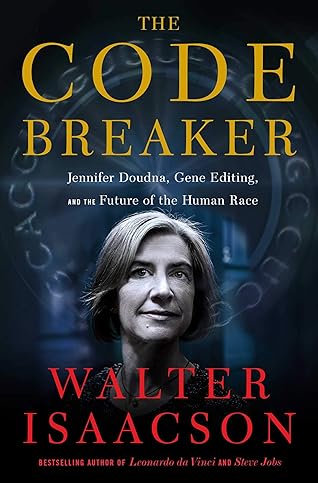More on this book
Community
Kindle Notes & Highlights
Read between
January 5 - January 15, 2024
The invention of CRISPR and the plague of COVID will hasten our transition to the third great revolution of modern times. These revolutions arose from the discovery, beginning just over a century ago, of the three fundamental kernels of our existence: the atom, the bit, and the gene.
In the five decades following his miracle year, his theories led to atom bombs and nuclear power, transistors and spaceships, lasers and radar.
information-technology era,
information could be encoded by binar...
This highlight has been truncated due to consecutive passage length restrictions.
development of the microchip, the computer, and the internet. When
“We humans don’t have time to wait for our own cells to evolve natural resistance to this virus, so we have to use our ingenuity to do that.
that it is another common substance in living cells, nucleic acids, that are the workhorses of heredity. These molecules are composed of a sugar, phosphates, and four substances called bases that are strung together in chains.
RNA molecules can split themselves by sparking a chemical reaction.
She also took up roller-blading and cross-country skiing. But her passion was science, and Griffin didn’t have her single-minded focus. Science for him was a nine-to-five endeavor, and he had no aspirations to be an academic researcher.
“If we had asked the National Institutes of Health to fund this project, we would have been laughed out of the room.”2
RNA interference operates by deploying an enzyme known as “Dicer.” Dicer snips a long piece of RNA into short fragments. These little fragments can then embark on a search-and-destroy mission: they seek out a messenger RNA molecule that has matching letters, then they use a scissors-like enzyme to chop it up. The genetic information carried by that messenger RNA is thus silenced.
The scientist does not study nature because it is useful. He studies it because he takes pleasure in it, and he takes pleasure in it because it is beautiful.
Enzymes are a type of protein. Their main function is to act as a catalyst that sparks chemical reactions in the cells of living organisms, from bacteria to humans. There are more than five thousand biochemical reactions that are catalyzed by enzymes. These include breaking down starches and proteins in the digestive system, causing muscles to contract, sending signals between cells, regulating metabolism,
and (most important for this discussion) cutting and splicing DNA and RNA.
It’s the only Cas enzyme that appears in all bacteria that have CRISPR systems,
Basic research is the pacemaker of technological progress.”
“It is just as often the case that invention is the parent of science: techniques and processes are developed that work, but the understanding of them comes later,”
Methodology is important in both,”
“You also must know the basics and master the methods. That requires persistence—repeating experiments and repeating them again, perfecting how to prepare the DNA when you clone a gene, and then doing it over and over again. It’s part of the training, just like the hard work of a ballet dancer, repeating all day long the same moves and methods.”
he remarked that one reason he is a good scientist, and also thought of as a bit of a madman, is that he questions the necessity of any premise.
“Producing our children by ‘sexual roulette’ without pre-conceptive and uterine control, simply taking pot luck, is irresponsible, now that we can be genetically selective,”
What if we could genetically engineer height or eye color? What about intelligence? Would we do that? Should we?
Frankenstein
In some cases when formulating a moral argument, it helps to do a reversal test.
So enhanced height is a positional good, while enhanced resistance to viruses is an absolute good.
the human receptor is a protein known as ACE2.
With the failure of the Trump administration to carry out widespread testing, university research labs began taking on a role that has normally been performed by the government.
And maybe that instinct—curiosity, pure curiosity—is what will save us.


